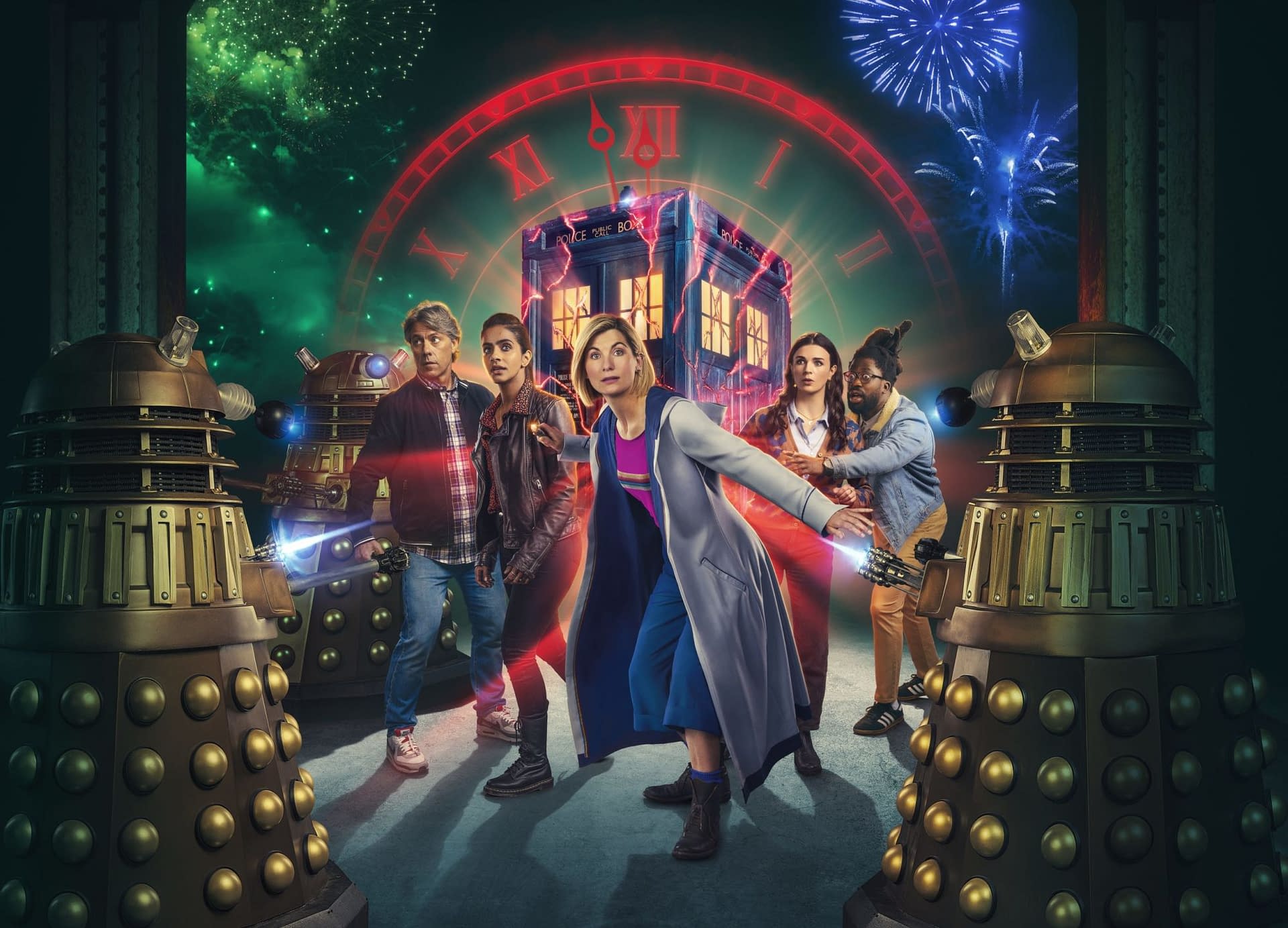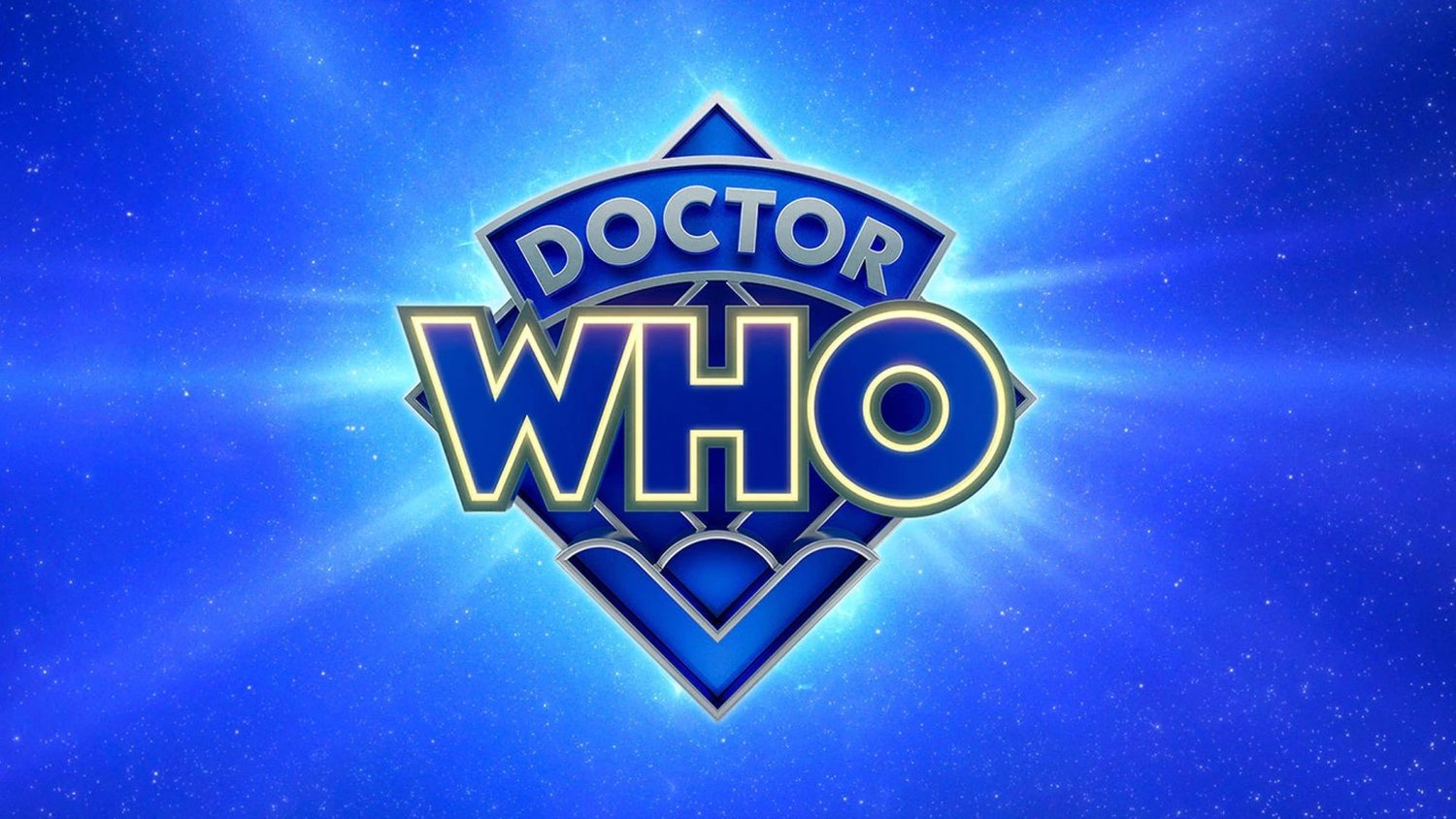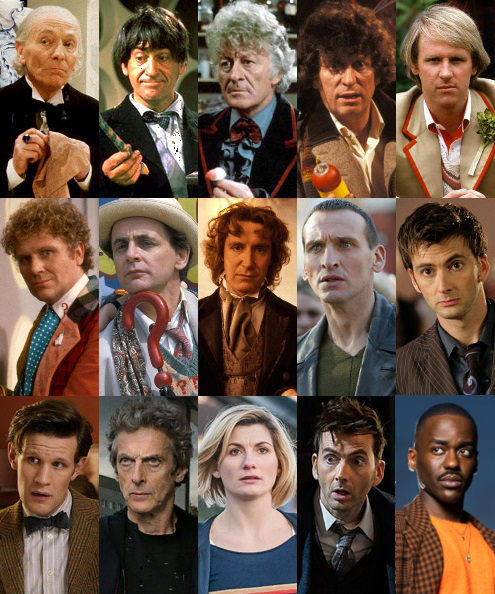I. Introduction
Doctor Who is a beloved British science fiction television series that has captivated audiences for decades. Since its first episode aired in 1963, the show has become a cultural phenomenon, with a dedicated fan base and a rich history. Over the years, Doctor Who has undergone various changes and adaptations, introducing new actors as the titular character, known as the Doctor, and exploring different storylines and universes. As the series continues to evolve, fans eagerly anticipate what the future holds for this iconic show.
The History and Evolution of Doctor Who
Doctor Who was created by Sydney Newman, C.E. Webber, and Donald Wilson and first aired on the BBC in November 1963. The show follows the adventures of the Doctor, a time-traveling alien known as a Time Lord, who explores the universe in his iconic spacecraft, the TARDIS. Throughout its history, Doctor Who has seen multiple actors portray the Doctor, each bringing their own unique style and interpretation to the role. This “regeneration” of the Doctor allows for the character to continue living on even as actors change, ensuring the longevity and freshness of the series.

The show has also undergone changes behind the scenes, with different showrunners taking the helm and shaping the direction of the series. Notable showrunners include Russell T. Davies, Steven Moffat, and Chris Chibnall. Each showrunner has brought their own vision and storytelling style, resulting in a constantly evolving narrative and a diverse range of episodes and story arcs.
Why is Doctor Who a Cultural Phenomenon?
Doctor Who has become much more than just a television show. It has become a cultural phenomenon that has resonated with people of all ages and backgrounds. Here are a few reasons why Doctor Who has captured the hearts and imaginations of millions:
1. Longevity: Doctor Who’s ability to regenerate the main character allows for the series to continue for decades, creating a rich and expansive universe that fans can explore.
2. Timeless Themes: Doctor Who explores themes of adventure, exploration, friendship, and the triumph of good over evil, which are timeless and resonate with audiences.
3. Diversity and Inclusivity: The show has always been at the forefront of diverse representation, featuring strong female characters, LGBTQ+ representation, and diverse casting choices, which has made it relatable to a wide range of viewers.
4. Fan Engagement: Doctor Who has a passionate fan base that actively participates in conventions, fan events, and online discussions, fostering a sense of community and belonging among fans.
5. Endless Imagination: With time travel as a central concept, Doctor Who has the ability to explore countless time periods, planets, and dimensions, providing endless possibilities for storytelling and imagination.
As Doctor Who continues to push boundaries and captivate audiences, fans eagerly anticipate the future of this beloved series and the adventures that lie ahead for the Doctor and their companions.

II. Casting the Doctor
The Gender Change: Jodie Whittaker as The Doctor
In 2017, the long-running British sci-fi series, Doctor Who, made a historic change by casting Jodie Whittaker as the first female Doctor. This decision sparked excitement, controversy, and a lot of discussion among fans and critics. Whittaker brought a fresh perspective to the role, showcasing her acting prowess and bringing a sense of renewed energy to the show.
As the thirteenth incarnation of the Doctor, Jodie Whittaker’s portrayal received mixed reactions initially. However, over time, many fans and critics praised her take on the iconic character. Whittaker brought a certain charm, wit, and vulnerability to the role, embodying the Doctor’s sense of adventure and eccentricity. Her casting encouraged more diverse representation in the series, inspiring young girls and women to see themselves in a heroic and intelligent character like the Doctor.
Fan Reactions and the Impact of a Female Doctor
The announcement of Jodie Whittaker as the first female Doctor created a wave of excitement and controversy among fans. Some were thrilled to see the series embracing change and introducing a new perspective to the character. They saw it as an opportunity for the show to explore different storylines and themes.
However, there were also fans who expressed concerns about the gender change, feeling that it went against the long-established canon of the show. Critics worried that this move was merely a gimmick or an attempt to pander to a wider audience. Nonetheless, as the series progressed, many skeptical fans were won over by Whittaker’s performance, appreciating her ability to capture the essence of the Doctor while making the role her own.
The impact of having a female Doctor goes beyond the boundaries of the show. It has become a symbol of empowerment and representation in the sci-fi genre. The character’s gender change has opened up conversations about gender equality and the importance of diverse representation in the media. Whittaker’s Doctor serves as a role model for aspiring actors and fans, showing them that anyone can step into the shoes of the Doctor, regardless of their gender.
Overall, Jodie Whittaker’s casting as the first female Doctor in Doctor Who has had a significant impact on the series and its fandom. It has brought a new dynamic to the show, sparked discussions, and inspired countless fans around the world. The future of Doctor Who looks promising as the series continues to evolve and embrace inclusivity.
III. The Show’s Future
The Showrunner Transition: Chris Chibnall to Russell T Davies
Doctor Who has always been a show that thrives on change, both in front of and behind the camera. In 2023, the show will see a significant transition as showrunner Chris Chibnall passes the reigns to Russell T Davies. This transition is highly anticipated among fans and has sparked much speculation about the future of the beloved sci-fi series.
Russell T Davies is no stranger to Doctor Who, having successfully revived the show in 2005 and served as showrunner until 2010. During his tenure, he brought the show back to its former glory, attracting millions of viewers and creating iconic storylines and characters. His return to Doctor Who is met with great enthusiasm, as fans are eager to see what new adventures he will bring to the TARDIS.
How the Change in Leadership Will Affect the Future of Doctor Who
The change in showrunner will undoubtedly have a significant impact on the future of Doctor Who. Here are some key factors to consider:
1. Tone and Storytelling: Each showrunner brings their unique vision and creative style to the series. Russell T Davies is known for his emotionally-driven storytelling and ability to create complex and relatable characters. It is expected that his return will bring a renewed focus on character development and impactful narratives.
2. New Direction and Storylines: As the show transitions to a new showrunner, it is likely that we will see a shift in direction and storytelling. Russell T Davies has a knack for reinventing well-known concepts and introducing fresh, innovative ideas. Fans can expect new storylines, villains, and adventures that will captivate and surprise them.
3. Returning Characters and Continuity: With Russell T Davies back at the helm, there is a possibility of the return of beloved characters from his previous run as showrunner. This could include fan-favorites like Rose Tyler, Captain Jack Harkness, and the Master. The show may also further explore the continuity and mythology established during Davies’ previous tenure.
Change is often met with both excitement and apprehension, and the transition from Chris Chibnall to Russell T Davies is no exception. However, fans can be reassured that Doctor Who has a rich history of reinvention and rejuvenation. With Russell T Davies back in charge, the future of Doctor Who looks bright, promising new and thrilling adventures for the Doctor and their companions.

IV. Storytelling and Themes
Exploring Social Issues and Representation in Doctor Who
One of the reasons Doctor Who has remained a beloved show for decades is its ability to tackle social issues and explore them through the lens of science fiction. The show has never shied away from addressing complex topics and using its platform to provide commentary on society. From its earliest episodes, Doctor Who has portrayed themes of discrimination, inequality, and the struggle for justice.
In recent years, Doctor Who has also made significant strides in terms of representation. The show has been commended for its efforts to diversify its cast and include characters from various backgrounds. The casting of Jodie Whittaker as the thirteenth Doctor marked a historic moment as she became the first female actor to portray the character. This decision has helped to inspire and empower fans around the world, proving that anyone can be a hero.
How Doctor Who Continues to Push Boundaries
Doctor Who has always been a show that pushes boundaries and challenges the status quo. It has constantly reinvented itself, adapting to the times while still maintaining its core values. Throughout its long history, Doctor Who has introduced innovative storytelling techniques, explored complex moral dilemmas, and tackled controversial subjects.
The show’s ability to captivate and engage audiences is a testament to its enduring appeal. Doctor Who continues to evolve and adapt with each new season, attracting both longtime fans and new viewers alike. As technology advances, the show’s visual effects and production values have only improved, creating even more immersive and thrilling adventures.
Doctor Who also continues to honor its rich history by incorporating references and callbacks to previous episodes and storylines. This creates a sense of continuity and connection for fans, while also introducing new twists and surprises.
Overall, the future of Doctor Who is promising. As long as the show’s creators and writers continue to prioritize compelling storytelling, diverse representation, and pushing boundaries, Doctor Who will continue to captivate audiences and inspire generations to come.

V. Expanding the Universe
Spin-offs and Expanded Universe of Doctor Who
Doctor Who is more than just a long-running TV show. It has expanded into a vast universe of spin-offs and extended media, which have contributed to its enduring success and popularity. These spin-offs and expanded universe stories have allowed fans to delve deeper into the Doctor Who mythology and explore a wider range of stories and characters. Some of the notable spin-offs and extended universe media include:
- Torchwood: Created by Russell T Davies, Torchwood follows the adventures of a secret organisation that protects the Earth from extraterrestrial threats. It has its own unique tone and explores more mature themes compared to the main show.
- The Sarah Jane Adventures: Aimed at a younger audience, The Sarah Jane Adventures follows Sarah Jane Smith, a former companion of the Doctor, as she solves mysteries and battles alien threats with the help of her young friends.
- Class: Class was a spin-off aimed at a young adult audience, set at Coal Hill School, a recurring location in Doctor Who. It follows a group of students who become embroiled in extraordinary events.
- Big Finish Productions: Big Finish produces audio dramas featuring past Doctors and companions, allowing fans to experience new adventures in audio format. These audio dramas have become immensely popular, attracting both new and old fans.
- Comics and Novels: Doctor Who has also expanded into the world of comics and novels, with various publishers releasing original stories featuring the Doctor and other characters from the show.
The Success and Relevance of the Extended Doctor Who Universe
The extended Doctor Who universe has allowed the show to reach new audiences and maintain its relevance in popular culture. By exploring different genres and formats, such as Torchwood’s darker tone and Big Finish’s audio dramas, Doctor Who has been able to cater to a wide range of tastes and interests. These spin-offs and expanded universe media have also helped to keep the Doctor Who brand alive during hiatuses between TV seasons and have kept fans engaged and entertained during these gaps.
Furthermore, the extended universe has allowed for greater world-building, fleshing out the rich history and mythology of Doctor Who. It has introduced new characters, alien species, and compelling storylines that have captivated audiences. The success of spin-offs like Torchwood and The Sarah Jane Adventures, as well as the popularity of Big Finish’s audio dramas, demonstrate the enduring love and enthusiasm fans have for the Doctor Who universe.
In conclusion, the expanded universe of Doctor Who has played a crucial role in keeping the show relevant and engaging for fans. By exploring different formats and genres, Doctor Who has been able to attract a diverse range of audiences and maintain its status as one of the most beloved science fiction franchises of all time.

VI. Technological Advancements
Special Effects and Production Quality in Doctor Who
Over the years, Doctor Who has experienced significant advancements in special effects and production quality, enhancing the overall viewing experience for fans. The show has evolved from its early days of low-budget practical effects to a visually stunning spectacle with the help of modern technology. Here are some highlights of the technological advancements in Doctor Who:
1. CGI: Computer-generated imagery (CGI) has become a crucial element in the show’s production. It allows the team to create realistic and visually stunning worlds, creatures, and spaceships that were previously impossible to achieve with practical effects alone. CGI has greatly enhanced the show’s ability to transport viewers to different time periods and galaxies.
2. High-Definition Cameras: The use of high-definition cameras has significantly improved the visual quality of Doctor Who. It allows for clear and crisp images, showcasing the intricate details of costumes, set designs, and makeup. As a result, fans can fully immerse themselves in the show’s rich and detailed world.
3. Advanced Green Screen Technology: Green screen technology plays a vital role in Doctor Who by allowing the actors to interact with virtual environments and creatures. This technology seamlessly merges the real and virtual worlds, creating a more immersive experience for both the actors and the audience.
How Technology is Shaping the Future of the Show
As technology continues to advance, it opens up new possibilities for Doctor Who. Here are some ways technology is shaping the future of the show:
1. Virtual Reality: Virtual reality (VR) technology has the potential to revolutionize the way viewers experience Doctor Who. With VR headsets, fans could be transported into the TARDIS, explore different planets, and even interact with the Doctor and other characters in a more immersive way.
2. Augmented Reality: Augmented reality (AR) technology could enhance the viewing experience by overlaying digital elements onto the real world. Imagine watching an episode of Doctor Who and seeing holographic projections of the Doctor, monsters, or even the TARDIS in your living room.
3. Artificial Intelligence: Artificial intelligence (AI) could play a role in improving the show’s writing, storytelling, and character interactions. AI algorithms could analyze viewer preferences and generate more personalized and engaging episodes of Doctor Who.
The future of Doctor Who is undoubtedly going to be shaped by these and other technological advancements. Fans can look forward to a show that pushes the boundaries of visual effects, storytelling, and immersive experiences, providing an even more thrilling and engaging journey through time and space.

VII. Doctor Who in Popular Culture
The Influence of Doctor Who in Books, Films, and Other Media
Doctor Who is not only a beloved television show but has also become a significant cultural phenomenon. Its impact can be seen in various forms of media, including books, films, and other entertainment outlets. Here’s a look at the influence of Doctor Who in popular culture:
- Books: Doctor Who has inspired a vast collection of novels and comic books based on the series. These books often feature new stories involving the Doctor and his companions, expanding the show’s universe and providing fans with additional adventures to enjoy. Some notable Doctor Who book series include the Doctor Who New Adventures, Eighth Doctor Adventures, and the ongoing series of Doctor Who novelizations.
- Films: The popularity of Doctor Who has also led to the creation of several films and animated specials. These include Doctor Who: The Movie, which served as a pilot for a potential American series, as well as animated adventures like Doctor Who: The Infinite Quest and Doctor Who: Dreamland. These films provide fans with engaging visual experiences and further exploration of the Doctor Who universe.
- Merchandise: Doctor Who’s influence extends beyond books and film into a wide range of merchandise. From action figures and clothing to collectible items and home decor, there is no shortage of Doctor Who-themed products available for fans to enjoy. This merchandising frenzy demonstrates the enduring popularity and cultural significance of the show.
- Fandom: The dedicated and passionate Doctor Who fan base has also made a significant impact on popular culture. Doctor Who conventions, fan art, cosplay, and fan fiction are just a few examples of how fans have embraced and contributed to the show’s legacy. The fan community has created a supportive and inclusive space where people can celebrate their love for Doctor Who.
- Crossover Appearances: Doctor Who has made crossover appearances in other television shows, furthering its influence and reach. The show has appeared in popular series such as The Big Bang Theory, South Park, and The Simpsons. These appearances introduce Doctor Who to new audiences and solidify its place in popular culture.
The influence of Doctor Who in books, films, and other media is a testament to the enduring appeal and creativity of the show. It has captivated audiences for decades and continues to inspire new generations of fans. As Doctor Who continues to evolve and push boundaries, its impact on popular culture is sure to remain significant.
Sources:

VIII. Conclusion
The Enduring Legacy of Doctor Who
Since its inception in 1963, Doctor Who has become a cultural phenomenon, captivating audiences with its time-traveling adventures and iconic characters. Throughout its long history, the show has reinvented itself time and time again, keeping fans hooked and attracting new audiences with each regeneration of the Doctor. The enduring legacy of Doctor Who lies in its ability to adapt and evolve, remaining relevant and beloved across generations.
Doctor Who has inspired countless fans to pursue careers in science, writing, and the arts. It has also sparked a sense of wonder and imagination, encouraging viewers to explore the unknown and question the fabric of reality. The show’s themes of hope, curiosity, and compassion have resonated with audiences worldwide, making it much more than just a television show.
Speculations and Hopes for the Future of the Show
As Doctor Who moves into the future, fans have endless speculations and hopes for what is to come. Here are some fan-fueled ideas that might shape the future of the show:
1. Diverse Casting: Many fans hope to see more diverse representation in future seasons of Doctor Who, including the possibility of a non-binary or female Doctor.
2. Exploration of New Worlds and Timelines: Doctor Who is known for its imaginative storytelling and vast universe. Fans are excited to see the Doctor continue to explore new worlds, encounter new alien species, and traverse different points in time.
3. Return of Past Companions: The show has seen several beloved companions come and go throughout its history. Fans often hope for the return of their favorite companions to see how their stories have progressed or to witness new adventures with the Doctor.
4. Ongoing Story Arcs: Doctor Who has experimented with long-form story arcs in recent seasons. Fans enjoy the intricate narratives that unfold over multiple episodes and hope to see more of these ongoing storylines in the future.
5. Collaborations with Other Fandoms: Fans love crossover events, and Doctor Who is no stranger to them. Collaborations with other popular franchises, such as Sherlock or Marvel, could bring new and exciting dynamics to the show.
While the future of Doctor Who remains uncertain, one thing is for sure: the show will continue to push boundaries, spark imagination, and inspire generations to come. As the next chapter unfolds, fans eagerly await new adventures in time and space with the Doctor.
References:
– Wikipedia: Doctor Who. Available at: [link to Wikipedia page on Doctor Who]






